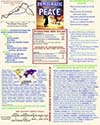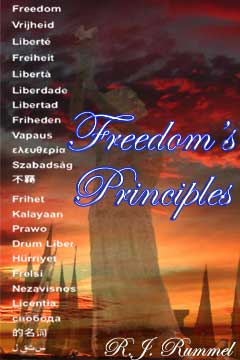I urge those of you who are interested in China and what it is like to live under absolute communist totalitarianism to read any one of the many Chinese memoirs now coming out. Their virtue is that they provide feeling and insight into what it was like to live day-by-day under such a system. These memoirs get away from the cold abstractions of scholarly and journalistic books on China, and their sterile analyses and statistics. To understand Mao’s China, you have to take to heart and sense its reality for the people, and these memoirs help you do so.
The latest I’ve read is Son Of The Revolution by Liang Heng and his wife Judith Shapiro. It is not as well written as Jung Chang’s Wild Swans: Three Daughters of China, nor as historically far reaching, since her book covers the personal history of her family over three generations. But, Liang’s memoir is more detailed in its focus on his life and that of his mother and father. Moreover, unlike Chang’s parents and Chang herself, who were high Chinese Communist Party (CCP) cadre, Liang and his parents were nothing but ordinary small city dwellers. His father was a reporter for a local newspaper and his mother worked for the local police.
His parents suffered incredibly from the various attempts by the CCP to cleanse China of bad thinkers, rightists, spies, and capitalist roaders. Of most interest to me was Liang’s experience as a Red Guard during the Cultural Revolution. He lived in Changsha in central China, which was one of the more violent cities during this period. The Red Guards, nothing more than teenagers and even younger children, divided into enemy factions, each claiming to represent the true revolutionary spirit of Mao. Each had weapons handed out by the army or stolen from armories, including even cannon, machine guns, mortars, and so on. The Army and police were ordered to be neutral in the battles between factions, although they themselves often broke into warring groups.
Guns were everywhere, with young kids and even girls, strutting around with pistols tucked into their belts. The battle in the city was horrendous: bullets whizzing down the streets made it very dangerous for anyone to step outdoors. As happened throughout China, teachers, professors, high officials, and cadre were often beaten, tortured, and murdered as the Red Guards tried to purge the city of those whom they perceived as lacking proper support for the revolution, or who they saw as Mao’s enemies. Evidence of this could be owning a Western book, having distant relatives that escaped to Taiwan, a grandfather who had fought the communists during the civil war, a mother that let drop a criticism of the CCP, and so on.
Among the Red Guards and others involved, no matter the fighting faction, they fought for love of Mao. This is not a typo. It was for LOVE.
I have consistently pointed out how such totalitarian systems run on fear. That is well documented in this memoir. But there is something added, which was also there in Chung’s book and others, but I had not picked it up as I did here. That is love. Liang was born in 1954, just as the bloody “land Reform” campaign was completed, and before the establishment of the commune—the factorization of the peasant—and Great Leap Forward. From birth, therefore, Liang was subject to intensive and continuous daily brainwashing and the implantation of correct thought. Mao became everything: the “Red Sun,” the “Great Saving Star,” the “Great Helmsmen,” and the “Heart and Soul of China.” If I remember correctly, the second word he learned after that for his mother was Mao. The Chinese were taught that they owed everything good about their lives to him, and everything bad to the previous nationalist regime, American imperialism, rightists, or capitalist roaders. Hard as it is to believe, because of this “education” that he and other Chinese received, he loved Mao, as did Jung Chang, and as did everyone they knew. It was inconceivable to question or criticize him.
But with this love, there still was the constant fear. But not of Mao, since he was perceived, as they were taught, to have only their welfare and happiness in mind. But the fear was of the CCP cadre, of their classifying one as evil, or their accusing one of violating one of the plethora of rules that governed everyday life. The consequences could be horrendous: denial of ration tickets, being made to divorce one’s mate, being sent to the countryside, public denunciation, humiliation, lying confessions, arrest, torture, even execution. One had no protection against any of this, no media, no lawyers, no courts, and no constitution. Everyone was totally at the mercy of the communist cadre, even the cadre themselves were at the mercy of those higher up.
What a fantastic combination. Love for the man responsible for the daily horrors, while fearing the personal impact of these horrors. Of course, no one could conceive that these were Mao’s fault. It just had to be those bad people around him or lower down in the CCP.
A good review of the book by Xiaowei Zheng is here.
Links of Note
“‘20,000’ on death row worldwide”:
At least 1,770 executions took place last year in China, where a person could be sentenced and executed for non-violent crimes including tax fraud, embezzlement and drug offence….
“China’s military budget jumps 14%”:
China has said it will increase its military spending by 14.7% this year to 283.8bn yuan ($35.3bn ….)….China’s armed forces are the biggest in the world and have seen double-digit increases in military spending since the early 1990s…. Washington has several times accused China of understating its military budget. It said last year’s spend[ing] was not the $30bn stated but closer to $90bn.
At the United Nations last September, the Security Council passed Resolution 1564, threatening Sudan with oil sanctions unless it curbed the violence in Darfur. China immediately threatened to veto any move to actually impose sanctions, so the threat was rendered useless.
RJR: It has to do with Sudan’s oil.
“Feinstein insists U.S. not bound to protect Taiwan”:
In remarks certain to please visiting Chinese President Hu Jintao, U.S. Sen. Dianne Feinstein on Thursday told a gathering of Chinese-American business and cultural leaders in San Francisco that the United States has no obligation to defend Taiwan if it provokes China into a military confrontation.”
RJR: If there is a hell for high officials that by their statements make war more likely, Feinstein is a strong candidate.
“Is the US asleep at the wheel?”:
US politicians and military officers think that Taiwan exists solely for the benefit of — or as a detriment to — US-China relations. This blissfully egocentric attitude has been the source of much confusion in cross-strait relations, and could lead Washington to make a major miscalculation jeopardizing its strategic position in the Western Pacific.
RJR: One problem is the near universal belief that Taiwan was before World War II part of China. It was not then or ever in the last century, nor did the treating ending the Japanese control of Taiwan (Formosa) give it to China. By treaty, its status is undetermined.
Protests are flaring across China’s countryside over everything from land seizures to corruption. In a nation of 900 million farmers, quelling this rising unrest may be Beijing’s greatest challenge…. By the central government’s own count, there were 87,000 “public-order disturbances” in 2005, up from 10,000 in 1994.
“Torture Exhibition:
Display of Crimes Against Conscience” Not for the queasy.
“China’s Cultural Revolution — A Docudrama “



 Posted by rudyrummel
Posted by rudyrummel 






